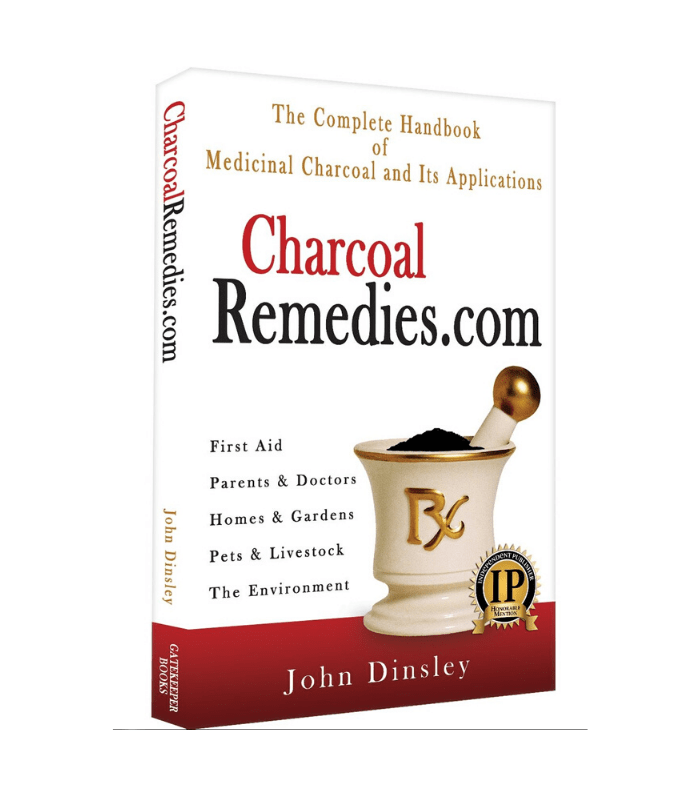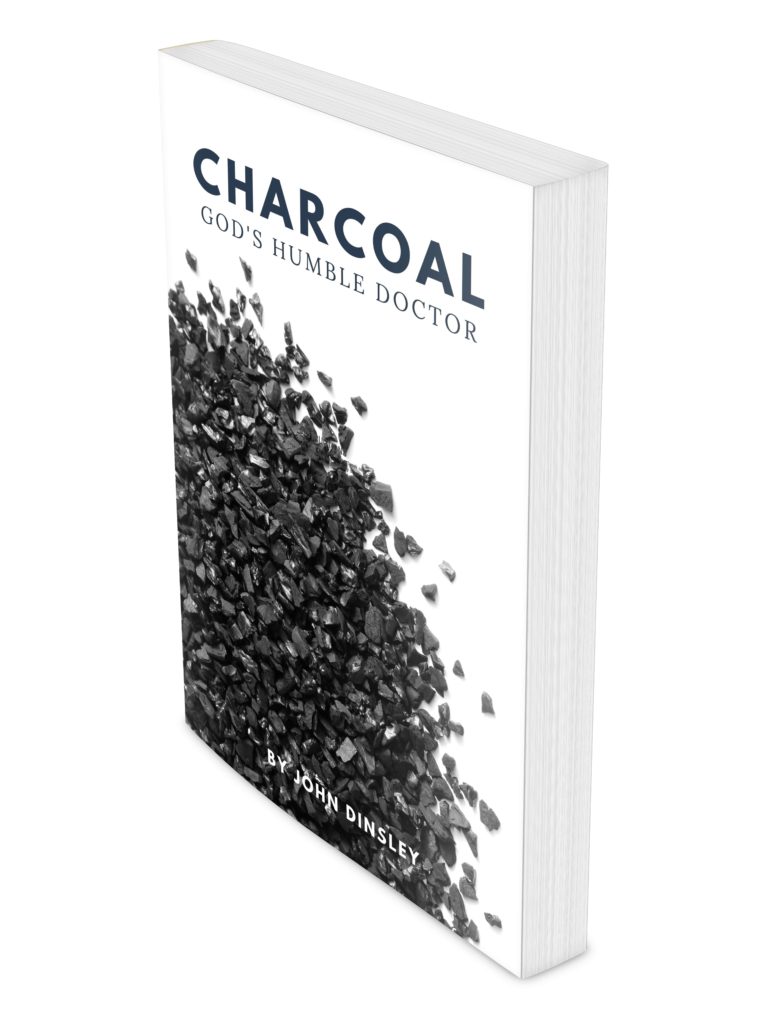OMRI Position Paper

Organic Materials Review Institute (OMRI) of Activated Charcoal for Livestock
In 2002 the USDA National Organic Program commissioned a three-member panel to give its recommendations for the use of activated charcoal for livestock. The review was compiled by the Organic Materials Review Institute (OMRI). The entire article is available as a PDF file at the bottom of our review of that paper.
The article begins with a broad view of the undisputed beneficial applications of activated charcoal including the removal of extremely toxic mycotoxins such as aflatoxin, natural plant toxins, synthetic pesticides, and in the treatment of drug overdose in livestock.
Specific Uses: The petitioned and principal veterinary use is as an antidote to toxic substances—and analogous medical applications include use as a detoxifier. It is regarded as the poison antidote of choice (Aiello, 1996) and the universal antidote to toxic substances (Kanzler, 1995). There is no reported overdosage or acute toxicity (Plumb, 1999). Activated charcoal is highly effective against both natural and synthetic toxins (Aiello, 1996). Studies show activated carbon to be effective in removing various mycotoxins, such as aflatoxin, fumonisins, ochratoxin A, trichothenes, and zearalenone (Dalvi and Ademoyero, 1983; Rotter et al., 1989; Kubena, et al., 1990; Edrington, et al., 1997; Huwig, et al., 2001). Natural toxins from plants are also removed or attenuated by activated charcoal treatment or supplementation (Pass and Stewart, 1984; McLennan and Amos, 1989; Poage et al., 2000; Banner, et al., 2000; Bisson, et al., 2001). Activated carbon can also be used to remove synthetic pesticides from animals that might contaminate milk or meat (Cook and Wilson, 1971; Morgan et al., 1977; Aiello, 1998). Treatment with activated carbon when using certain parasiticides can help reduce the residual levels in flesh and fatty tissue (Crookshank, et al., 1972). Finally, activated charcoal is used to treat animals for drug overdoses (Haddad and Winchester, 1983), with efficacy established on pigs (Lipscomb and Widdop, 1975), dogs (Widdop et al., 1975), and rabbits (Galloway and Liu, 1981).
The Review Panel Conclusion:
“Activated charcoal is essential to save the lives of animals that are accidentally poisoned. The reviewers all advised that the substance should be permitted for use in organic production, provided it was limited to therapeutic use only. Given the nature of the veterinary emergencies likely to be encountered, restrictions on source do not appear to be appropriate. Most pharmaceutical grade activated charcoal is derived from vegetable—as opposed to animal or fossil—sources. Overall restrictions on its prophylactic use as a feed supplement and to conceal the administration of substances prohibited in organic production would protect against possible abuse.”
Editor’s note: Is the aim of this review to protect the owner, the consumer or the animal?
We are encouraged by the united position of the reviewers in describing the “essential” role activated charcoal should maintain in saving the “lives of animals that are accidentally poisoned.” Bravo!! But what about saving the lives of animals that are intentionally poisoned whether maliciously or for profit? Do they not count?? Are they to be abandoned as innocent victims of the unscrupulous feedlot practices of agribusiness? If a new, inexperienced, or uninformed farmer intentionally (it is not hard to imagine) gives some prohibited product to enhance animal growth, is he to compound his fraud by not providing the animal with the antidote that might save its health or life? Or, if the niggardly provide spoiled feed or feed contaminated with poisonous plants, is the animal to be left to suffer or die?
Should livestock owners use activated charcoal as a feed supplement to minimize the effects of known contaminants, prohibited substances, or poor quality feed? If they have knowingly exposed their animals to poisons, then absolutely yes! The owners should provide the antidote in a timely fashion. On the other hand, how is the conscientious livestock owner to know in every single case that the feed he has spent money to buy or produce himself is top quality and completely free of any pathogens or prohibited substances. The simple answer is, he cannot. Should the conscientious owner be restricted in his judgment to use activated charcoal as a preventive, because he is surrounded by unscrupulous profiteers? Absolutely not!
As an inexpensive insurance against the loss off his hard work investment, the preventive (prophylactic) use of activated charcoal as a feed supplement to completely neutralize or minimize the possible toxic effects of feed contaminants in fact falls within sound livestock management practices. In no case should the individual livestock owner be restricted in this inexpensive management tool, but should be encouraged to keep activated charcoal in stock and at all time easily accessible for emergency or routine use.The moral ethical issue here should address the owner, the consumer and not ignore the animal.
- The owner has a right to protect his investment. The free use of activated charcoal as the universal antidote for poisoning should be unrestricted.
- The consumer has a right to protect his life and health. Restricting the use of activated charcoal as an antidote for poisoning as a deterrent in cases of flagrant and dangerous livestock feeding practices does nothing to protect the consumer from those profiteers who will obviously find an outlet to sell their contaminated products. The consumer is protected to the greatest measure when the use of activated charcoal as the universal antidote for poisoning is widely advertised and promoted by all regulatory agencies, especially when considering the presence of crooked feedlot managers.
- Lastly, the innocent animal should not be left the victim of laws that restrict the use of a proven remedy in the futile attempt to restrict the unscrupulous who will find some other venue to sell their contaminated products.
In Conclusion: while the OMRI committee very carefully detailed the unequalled antidotal nature and history of charcoal, in their misguided attempt to safeguard the consumer they utterly failed in protecting anything – the livestock owner, the innocent sacrifice, or the consumer.
CLICK HERE FOR PDF fileTo read more how Activated Charcoal can actually extend the lifespan of laboratory animals by 34% click HERE
To read more how Activated Charcoal can actually increase egg and milk production click HERE.

John Dinsley
Born in British Columbia, Canada, John Dinsley has lived, and worked from South America to the North Pole, from Nova Scotia to Nepal. He is trained as a lifestyle counselor, teaches public health programs, home remedies workshops, and has operated a family care home. He and his wife Kimberly are the owners of Charcoal House LLC. They often travel together across the U.S. and internationally to conduct charcoal workshops. He is a carpenter by trade, has managed an organic market garden business, and volunteered in overseas development work. When he is not building, teaching or gardening, he enjoys writing.


